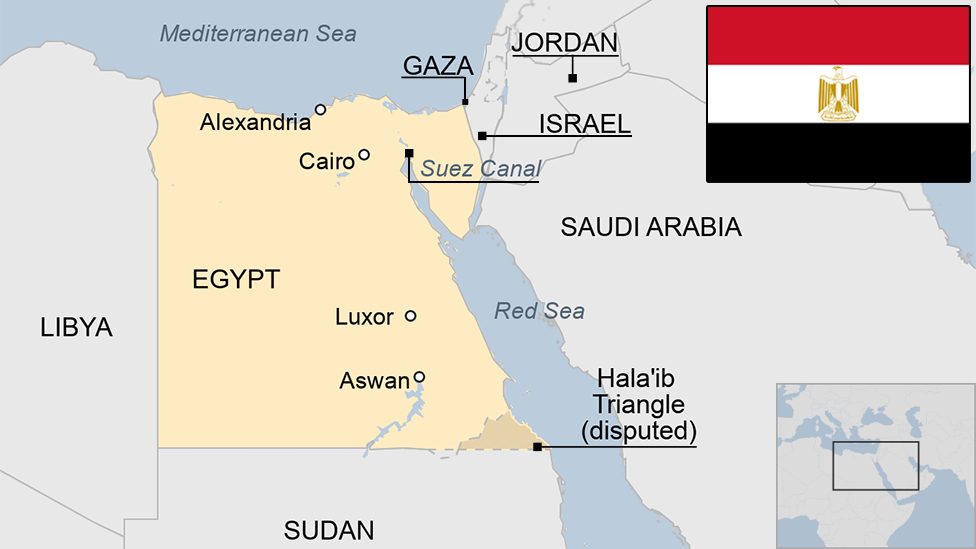Egypt mourns Coptic church attack victims
- Published
'We don't fear' says a worshipper at the bombed St George's Church in Tanta
Funerals have been held in Alexandria for victims of one of the two bomb attacks on Coptic churches in Egypt by so-called Islamic State (IS).
The ceremony at the Monastery of St Mina took place under heavy security.
At least 45 people died in the bombings in Alexandria and the Nile Delta city of Tanta on Sunday, prompting a three-month state of emergency.
Hours after the funerals, reports emerged of police killing seven IS militants planning more such attacks.
The interior ministry said the militants were killed after they opened fire on the security forces who approached them in the southern province of Assiut.
'Nothing is good'
President Abdul Fattah al-Sisi ordered troops to be deployed to protect "vital infrastructure" and warned of a "long and painful" war against jihadists, who have killed hundreds of people in the country in the past four years.
Hundreds attended the funeral of some of the 17 people who died when a bomber blew himself up after being stopped by police at the gates of St Mark's Cathedral, where Pope Tawadros II led a Palm Sunday service.
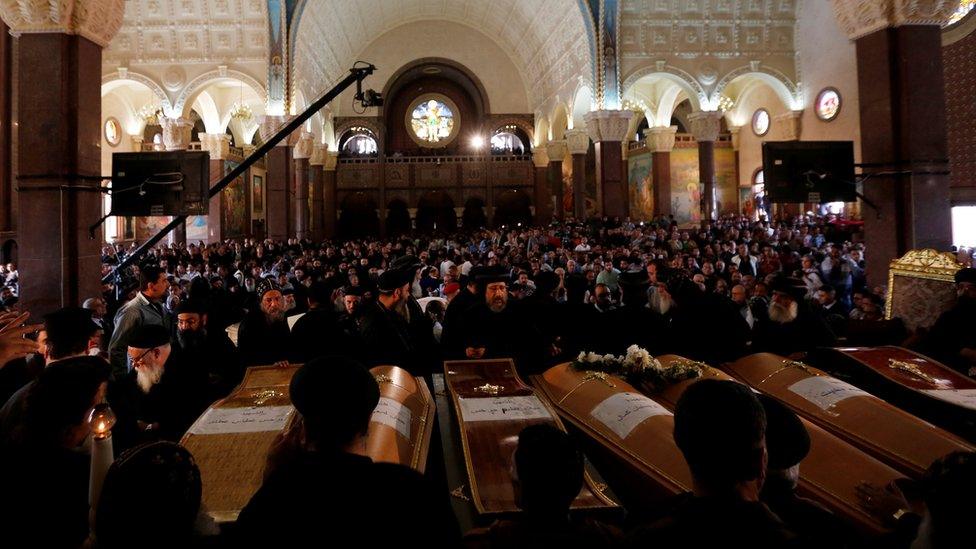
Many mourners express outrage at the state's failure to protect the Coptic Christian minority
Priests in flowing, dark robes stood before a line of coffins marked with the word "martyr", and the building was filled with the prayers and chanting.
Many of the mourners expressed outrage at the state's failure to protect Copts from attacks by IS, which threatened in February to escalate its campaign against them.
"Where should we go pray? They are attacking us in our churches. They don't want us to pray but we will pray," Samira Adly, whose neighbours died in the attack, told Reuters news agency.
"Everyone is falling short... the government, the people... nothing is good."
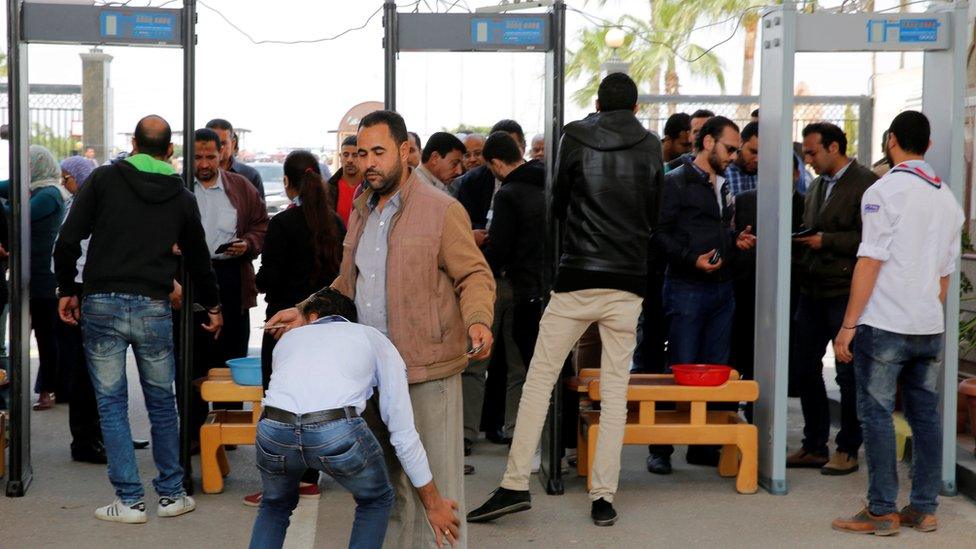
Mourners were searched at the entrance to St Mina's Monastery on Monday
Youths who gathered outside the monastery during the funeral shouted "Down with any president as long as Egyptian blood is cheap" and "Down with military rule", according to Reuters.

Copts in Egypt: Recent developments
December 2016: 25 people died when a bomb exploded at the Coptic cathedral in Cairo during a service. IS said it was behind the attack
February 2016: A court sentenced three Christian teenagers to five years in prison for insulting Islam. They had appeared in a video, apparently mocking Muslim prayers, but claimed they had been mocking IS following a number of beheadings
April 2013: Two people were killed outside St Mark's cathedral in Cairo when people mourning the death of four Coptic Christians killed in religious violence clashed with local residents

A cousin of one of the 28 people killed in the attack in Tanta, where the suicide bomber managed to get inside St George's Church, also expressed anger at the failure to keep the congregation safe on an important day in the Christian calendar.
"How did the bomb enter when there's security outside the church? They're saying now the metal detector wasn't working," said Beshoy Asham.
Footage shows the scene following an explosion at a church in Tanta in northern Egypt
The attacks raised security fears ahead of a visit to Cairo by Pope Francis, the head of the Roman Catholic Church.
But Archbishop Angelo Becciu, the Vatican's deputy secretary of state, insisted on Monday that there was "no doubt" that the trip would go ahead on 28 and 29 April.
"What happened caused disorder and tremendous suffering, but it cannot stop the pope's mission of peace," he told Italy's Corriere della Sera newspaper.

State of emergency: The measures
Further restrictions on freedom of movement and gatherings
Monitoring of all forms of communication
Entitles president to confiscate or shut down media outlets
Allows any property to be placed under control of security forces
Deployment of security forces to enforce measures
Arrest of anyone suspected of violating state of emergency

Egypt's cabinet meanwhile gave its backing to President Sisi's declaration of a nationwide state of emergency, saying the security forces would "do what is necessary to confront the threats of terrorism and its financing".
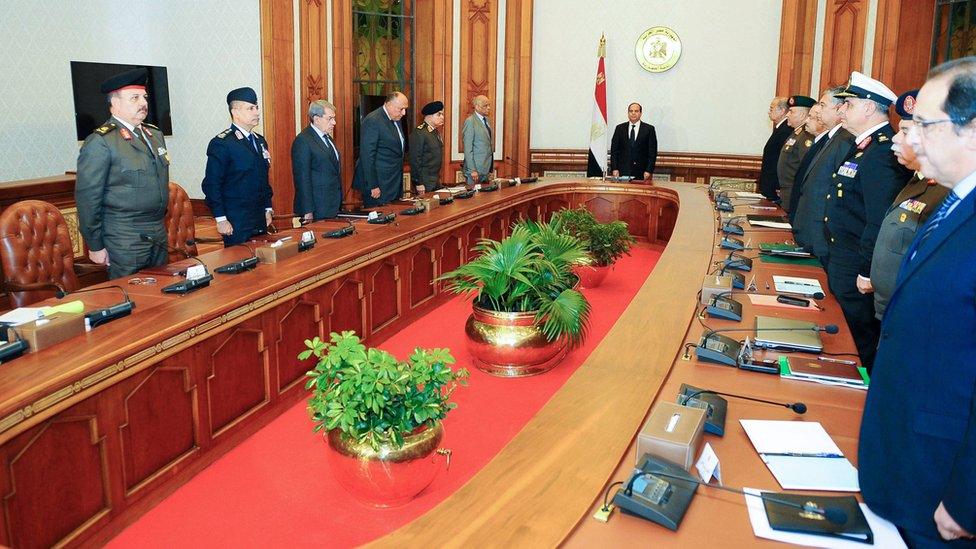
President Abdul Fattah al-Sisi warned of a "long and painful" against jihadists
The cabinet said the state of emergency came into effect at 13:00 (11:00 GMT), but the decision must still be approved by parliament within seven days.
Analysts said the decision was a political one because the security forces already enjoy wide-ranging powers that they have used to crush dissent since Mr Sisi led the military's overthrow of Egypt's first democratically elected president in 2013.
More than 1,000 people, most of them supporters of Mohammed Morsi and his Muslim Brotherhood, have been killed and tens of thousands imprisoned.
- Published10 April 2017
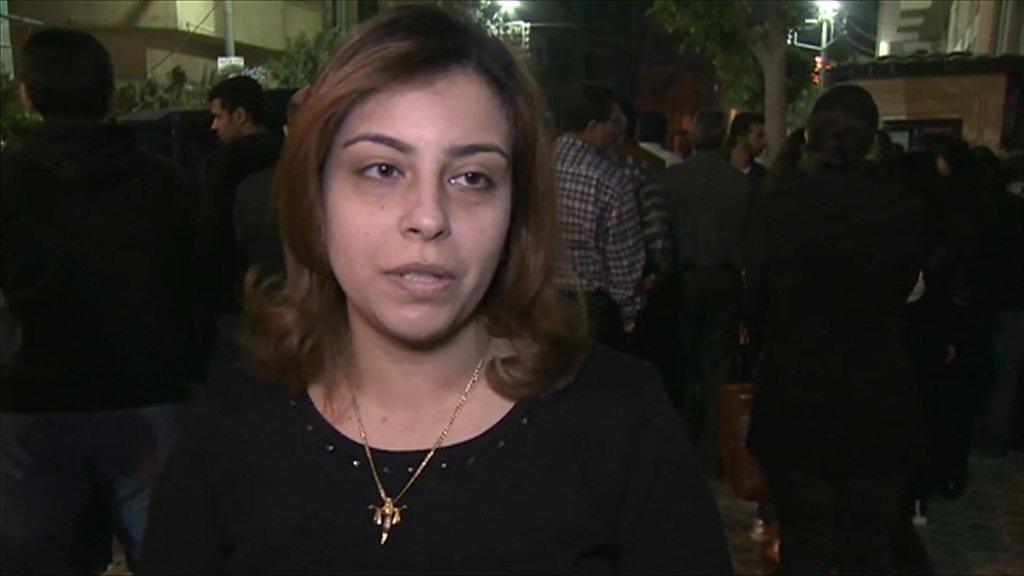
- Published10 April 2017
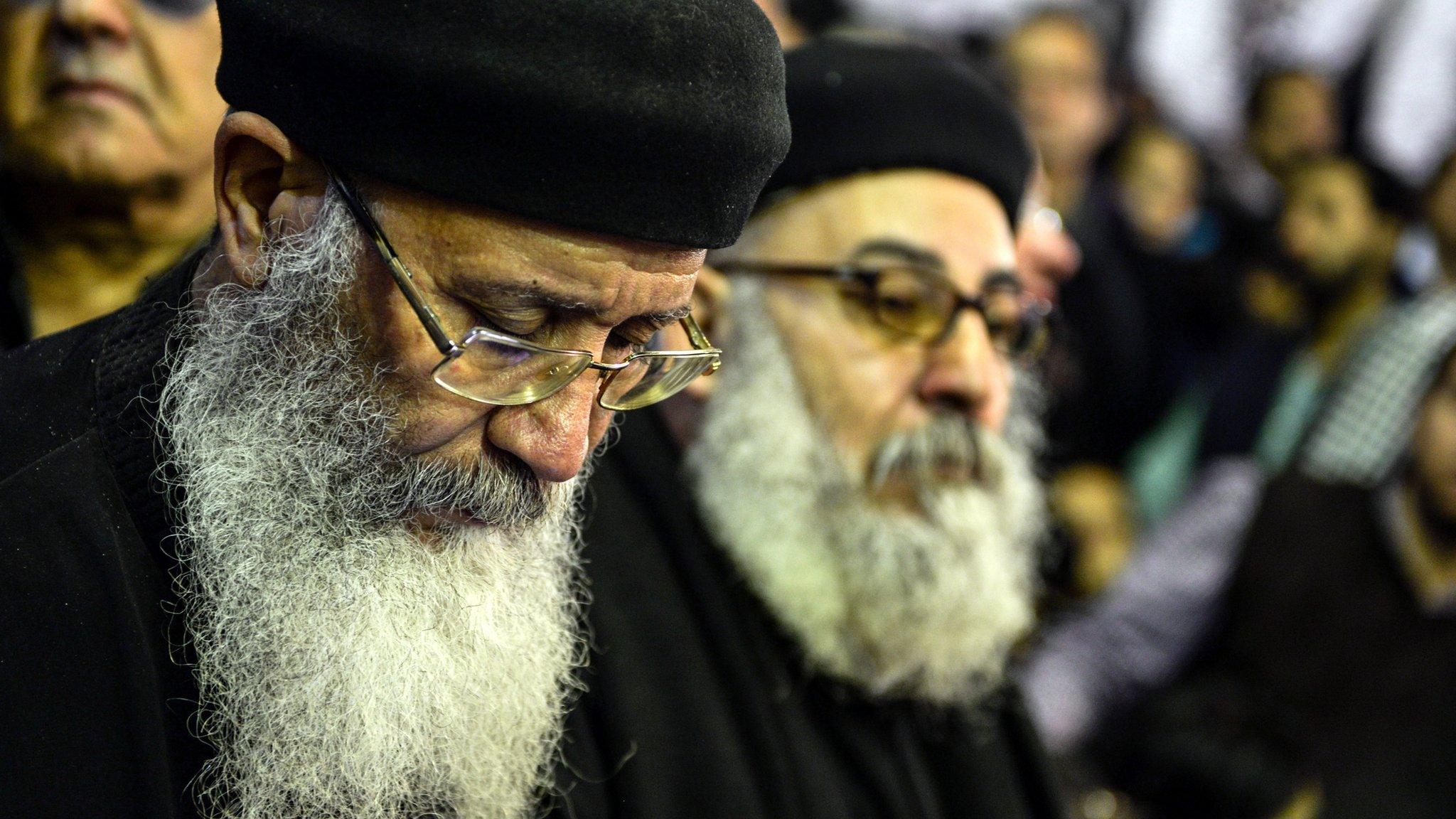
- Published9 April 2017
- Published16 February 2015
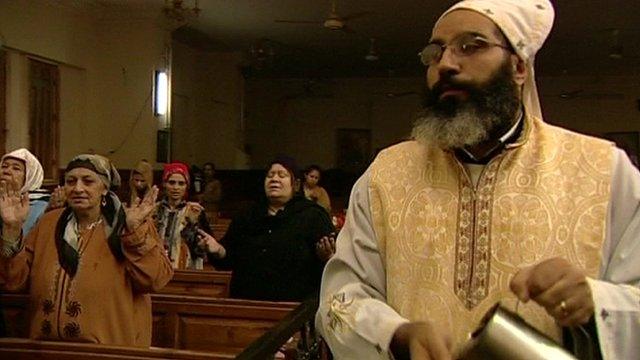
- Published25 February 2017
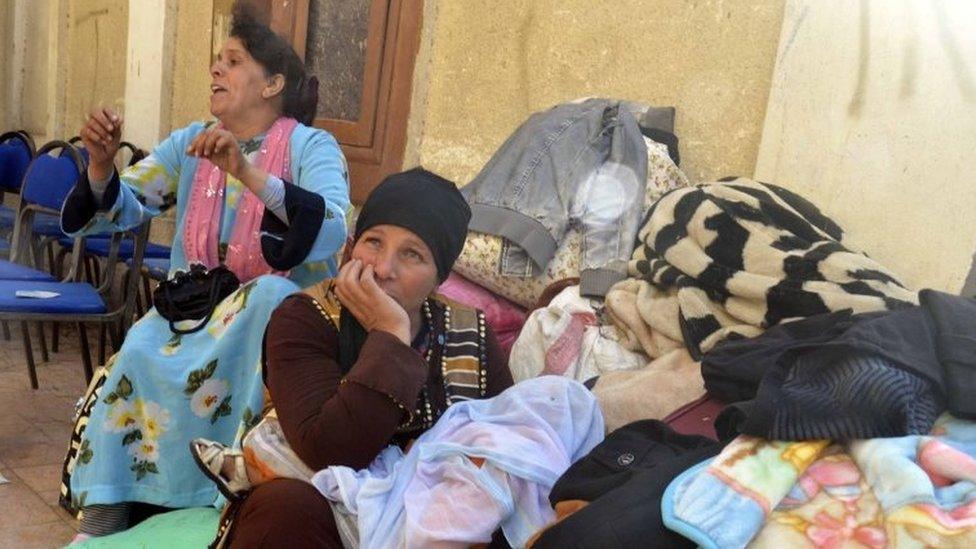
- Published2 January 2024
